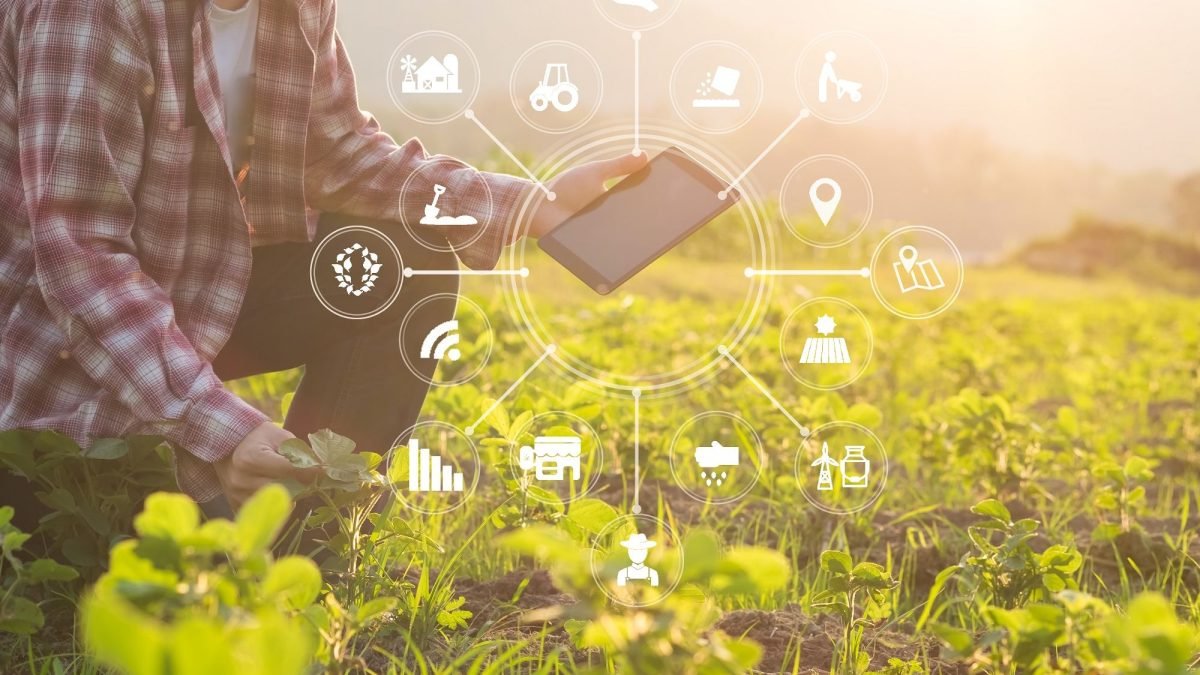Revolutionizing Agriculture: How AI is Shaping the Future of Farming
Introduction
In this technology-driven era, various sectors have seen innovation, improvement, and entirely new ways to achieve their goals. One pivotal sector that is currently undergoing substantial transformation is none other than agriculture, and the game-changer in this regard is Artificial Intelligence (AI). This article delves into the revolutionizing role of AI in farming and how it is shaping the future of agriculture.
Understanding the Realm of AI Tools in Agriculture
Before discussing the implications, it is necessary to understand what AI in agriculture entails. AI, at a basic level, involves the creation of algorithms that aim to imitate human intelligence and learning patterns. These intelligent algorithms are often coupled with other technological advancements, such as IoT devices, robotics, and drones. They have proven effective in offering solutions to complex agricultural tasks, ensuring increased productivity and sustainability.
Read Also: Fortifying Digital Frontiers: The Synthesis of AI and Cybersecurity
Efficient Crop Management
A crucial advantage of integrating AI into modern farming methods is efficient crop management. AI-powered tools and applications can analyze multiple factors that affect crop growth. These include soil conditions, weather patterns, and potential pest threats, among others. By forecasting these factors, farmers can make informed decisions that maximize crop yields and minimize losses due to adverse conditions.
Precision Agriculture
One of the applications of AI in agriculture is precision farming, a farming management concept based on observing, measuring, and responding to inter and intra-field variability in crops. AI helps farmers to precisely determine the amount of water, fertilizer, or pesticide that each plant needs by using automated systems. This targeted approach saves resources, increases yield, reduces costs, and has a less negative impact on the environment.
Robotic Innovation in Farming
Another notable aspect of AI in the farming industry is the development and deployment of advanced robotic systems. These robots are designed to perform various agricultural tasks such as seeding, harvesting, and sorting, increasing the speed and efficiency of these tasks exponentially.
Improved Livestock Management
By implementing AI, farmers can also efficiently monitor the health and well-being of their livestock. Sensors can collect data about each animal’s health, activity, and productivity, providing farmers with real-time alerts. The use of AI in these circumstances leads to better animal welfare, better product quality, and lower costs.
AI Accessibility for Small-scale Farmers
AI tools are not just for large-scale farmers. Advanced farming technology providers are combining knowledge and AI, enabling small-scale farmers to benefit from technology too. Even those with basic smartphones can now access advisory services and farming intelligence, hugely democratizing the agriculture sector.
Conclusion
The wave of AI is increasingly becoming a boon for the agriculture sector, revolutionizing farming practices, enhancing crop yields, reducing waste and input costs, and much more. As AI technology continues to evolve and become more accessible, the future of farming looks brighter than ever.
Frequently Asked Questions (FAQs)
How is AI Changing the Future of Farming?
AI is revolutionizing farming by providing efficient crop management, enabling precision agriculture, creating advanced robotic systems for various farming tasks, improving livestock management, and making agricultural knowledge accessible to small-scale farmers.
How Can AI Improve Crop Yield?
A combination of AI and data analytics can predict weather patterns, monitor soil conditions, and detect pest threats. These insights enable farmers to take preventive measures and make informed decisions, thus improving crop yield.
What Does AI in Precision Farming Entail?
AI in precision farming involves the use of technology to exactly determine the amount of resources each plant needs, including water, fertilizer, and pesticides. This precise resource distribution improves crop yield and saves resources.
How Can AI Ensure Better Livestock Welfare?
With AI, farmers can monitor real-time health parameters, activities, and productivity of livestock through the use of sensors. This enhances animal welfare by ensuring timely medical intervention and suitable living conditions.
Is AI in Agriculture Accessible for Small-Scale Farmers?
Yes, with advancements in technology, AI tools are becoming increasingly accessible for small-scale farmers, enabling them to benefit from predictive analysis, precision farming, and real-time crop and livestock monitoring, all often through simple smartphone applications.





